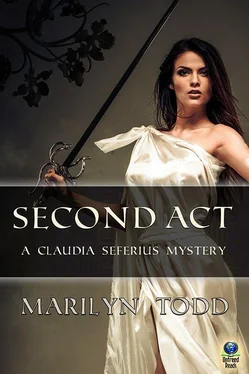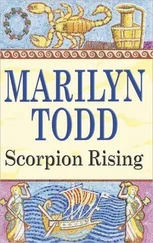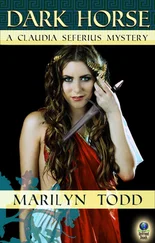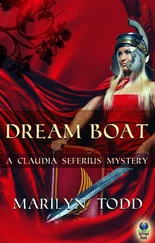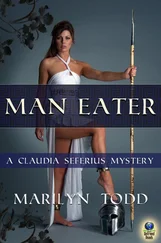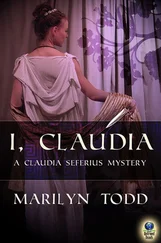Marilyn Todd - Second Act
Здесь есть возможность читать онлайн «Marilyn Todd - Second Act» весь текст электронной книги совершенно бесплатно (целиком полную версию без сокращений). В некоторых случаях можно слушать аудио, скачать через торрент в формате fb2 и присутствует краткое содержание. Жанр: Исторический детектив, на английском языке. Описание произведения, (предисловие) а так же отзывы посетителей доступны на портале библиотеки ЛибКат.
- Название:Second Act
- Автор:
- Жанр:
- Год:неизвестен
- ISBN:нет данных
- Рейтинг книги:3 / 5. Голосов: 1
-
Избранное:Добавить в избранное
- Отзывы:
-
Ваша оценка:
- 60
- 1
- 2
- 3
- 4
- 5
Second Act: краткое содержание, описание и аннотация
Предлагаем к чтению аннотацию, описание, краткое содержание или предисловие (зависит от того, что написал сам автор книги «Second Act»). Если вы не нашли необходимую информацию о книге — напишите в комментариях, мы постараемся отыскать её.
Second Act — читать онлайн бесплатно полную книгу (весь текст) целиком
Ниже представлен текст книги, разбитый по страницам. Система сохранения места последней прочитанной страницы, позволяет с удобством читать онлайн бесплатно книгу «Second Act», без необходимости каждый раз заново искать на чём Вы остановились. Поставьте закладку, и сможете в любой момент перейти на страницу, на которой закончили чтение.
Интервал:
Закладка:
She was halfway back to the atrium when a deep voice called down the corridor after her.
‘By the way, you don’t have to worry about amethysts being wasted on the likes of me,’ Skyles said. ‘Flavia didn’t give me that ring.’ He timed his pause. ‘She threw it down the disused well outside the Temple of Juventus. An offering to the god of youth.’
Sixteen
In his office covered with hunting trophies and memorabilia, Sextus Valerius Cotta looped his thumbs into his belt and stared across the peristyle, listening to the orchestral sounds made by the rain. The drumming as it landed on the large leaves of the castor oil plants. A tinkling as it hit the ivy on the trellis, the percussion as it bounced off fan palms and the lavender, the deeper plopping noises as it dripped from the bare branches of the pomegranate tree.
With space on the Palatine at a premium, his house was smaller than many of his colleagues’, who preferred the grandeur of the Esquiline-the garden poky, if you like, in comparison. But prestige is measured in quality, rather than quantity, and Cotta’s bronze discus thrower and rearing marble horses, like the furniture in his house, were prized antiques and the craftsmen he employed were the finest in Rome. The artists, for example, called every March to perforate the stems of that tinkling ivy to release a gummy sludge which they’d mix with wine and urine then boil to produce the blood-red pigment used to colour the walls of Cotta’s office. There was, he decided, no substitute for detail. None whatsoever.
It was this attention to detail which had won him his victories in Cisalpine Gaul, among others, and had later honed his skills as a tactician in the Senate. He thought about the boar that had terrorized the Umbrian hills and whose head still snarled in defiance, only now it did so above his office chair. He recalled riding out across the Syrian desert to spear the panther whose glistening pelt he wore home as a cloak, like Hercules, and whose fangs hung round the neck of his youngest son. He remembered the lion he took on single-handed and whose skin made a nice warm rug on his floor, its head a comfy footrest beneath his desk. Attention to detail. Without it, the boar would have sunk its tusks in his belly, gutted him like a sardine. Every victory, every triumph, from Gallic uprisings to the guile of the panther, had been engineered through painstaking plotting. Even in emergencies, Cotta hadn’t rushed into anything, but had pored over the plans, rethinking, redevising, unafraid to scrap previous strategies and start again.
It would be the same when he blew up the Senate.
He opened the lime-wood box with an ornately carved hinged lid that sat on his desk. The box had belonged to his father, and Cotta had lost count of the number of times he’d praised the old man’s good sense in keeping it in his bedroom rather than taking it to the west wing when he’d conducted his final experiment in the search for immortality.
Lined up side by side within the box, like dolls in a cot, lay several kid-skin pouches, separating the ingredients for the fabled elixir. Cotta untied the string from one of the pouches, dipped his finger in the ruby red powder and examined it in the light. Realgar. What the Arabs who fetched it up from the bowels of earth called Fire of the Mine. He sniffed carefully, but did not make the mistake of licking his finger, instead wiping it clean with a cloth. Realgar was a form of arsenic.
He retied the pouch, opened another and tipped out a series of opaque yellow crystals, each forming a perfect metallic cube. A third pouch contained crystals of a much brighter yellow. Needle-like, these crystals were sulphur, while yet another pouch kept separate the gritty, vermilion-coloured cinnabar, which the old man had insisted was essential. The final pouch contained the most precious ingredient of all. A substance known as Poseidon Powder.
Poseidon was the name the Greeks gave to the God of the Sea, who conjured up storms and cleaved the land with his trident, sending waves three storeys high to devastate the land after he’d shaken it. Fine and chalky, white as flour, Poseidon Powder was only found in a handful of secret places in the world, one of which lay close to the rose-red city of Petra in the Jordanian desert.
These nitre beds were formed from camel dung from the huge caravans that used to camp outside the city in the old days, before the sands-and the caravans-shifted. Over time, the dung reacted with the salty soil and the moisture in the air to form crystals that dissolved in rain then dried into a fine, white powder on the surface. To the Arabs who guarded these precious nitre beds, the powder was known as salt of Petra. Saltpetre.
For Cotta’s father, this substance was the key to eternal life.
For Cotta, it was the key to releasing the eagle.
In its present form, the powder was not dangerous, but when mixed with other substances, it was-as his father discovered-highly combustible. What Cotta needed to know was the precise formula the old man had worked to.
Only one other person knew the answer. The servant who had helped the old man with his fatal experiment.
A servant who had apparently vanished into thin air.
Seventeen
Julia’s husband, Marcellus, had no idea he was sitting a mere hundred paces from the Arch-Hawk of the Senate, and even if he had, he would have imagined the Senator’s thoughts were concerned more with the burning of Dacian cities and the storming of Scythian fortresses than how a pinch of chalky powder would change the future of Rome. Every afternoon around this time Marcellus took himself off to the library. Not any old library, mind you, though heaven knows there were plenty to choose from. For Marcellus, there was only one library which mattered. The one adjacent to the Temple of Apollo on the Palatine.
The incentives were numerous. The view, for one. The vast spread of the city sprawled away below him, he could watch the ants bustling back and forth across the open plazas. Slaves doubled under the weight of barrels, beams and sacks, children scampering, donkeys plodding along with bulging panniers. He could see litters carrying the rich. Young men carrying the old. In fact, every stratum of humanity passed below him here, and if a man preferred a gentler pace on which to rest his eyes, he only had to gaze across to the rolling hills beyond, or watch the barges being hauled along the banks of the Tiber by patient oxen. On the other hand, if it was excitement that he craved, he could always crane his neck and watch the charioteers practising in the Circus Maximus below, leather chest protectors tied tight around their torsos and helmets to protect them when they fell. Not that Marcellus could see any of those things today. Low, grey clouds obscured the hills and released a relentless shrouding drizzle.
But if the view wasn’t enough to lure a person up the Palatine’s steep embankment, there was the sheer grandeur of the temple itself. The breathtaking colonnades of yellow Numidian marble. Exquisite frescoes, statues, marble busts, not to mention the Great Frieze depicting Augustus’s victory over Antony and Cleopatra’s fleet at Actium. Some of the finest paintings and sculptures the world had ever seen were on display here, many of them precious beyond price, being works by the old masters, but views and artistic splendours were not the motivation behind Marcellus’s daily visits. He didn’t give a hoot about the Greek and Latin archives, either, or the fact the ancient Sybilline Prophecies were stored at the base of Apollo’s bravura statue.
Important men passed through this library. Senators, philosophers, landowners, merchants, shipbuilders, shipowners, shipping magnates. One day might find Marcellus engaged in debate with a tribune, another day with a prefect for the roads. Sooner or later, he reasoned, one of them was bound to shove a co mmi ssion his way.
Читать дальшеИнтервал:
Закладка:
Похожие книги на «Second Act»
Представляем Вашему вниманию похожие книги на «Second Act» списком для выбора. Мы отобрали схожую по названию и смыслу литературу в надежде предоставить читателям больше вариантов отыскать новые, интересные, ещё непрочитанные произведения.
Обсуждение, отзывы о книге «Second Act» и просто собственные мнения читателей. Оставьте ваши комментарии, напишите, что Вы думаете о произведении, его смысле или главных героях. Укажите что конкретно понравилось, а что нет, и почему Вы так считаете.
